SUMMARY
This is AI generated summarization, which may have errors. For context, always refer to the full article.
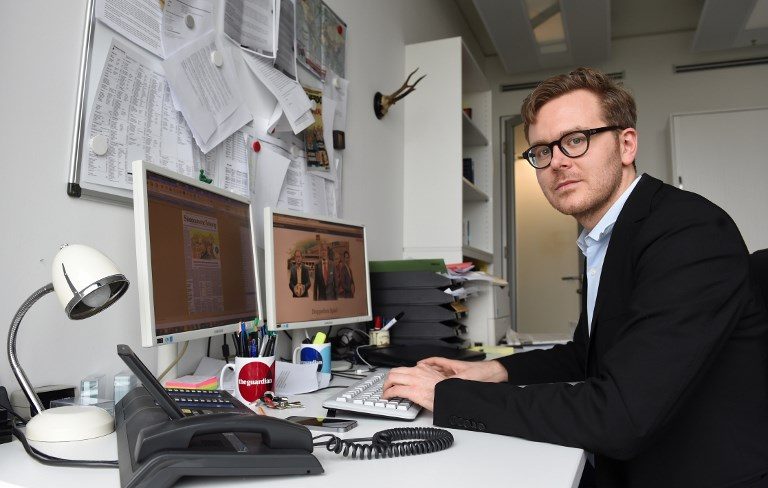
HONG KONG – German journalist Frederik Obermaier is not used to the attention he’s received since the publication of the Panama Papers in 2016. During the Pulitzer Prize workshop hosted by the Hong Kong Baptist University here, students lined up to have their photos taken with him and his colleague Bastian Obermayer, who were part of the panel.
In 2016, the two journalists of the Munich-based newspaper Sueddeutsche Zeitung, together with dozens of journalists from other countries, exposed what the International Consortium of Investigative Journalists (ICIJ) described as “a system that enables crime, corruption and wrongdoing, hidden by secretive offshore companies.”
A John Doe handed the two German journalists files containing 11.5 million documents from Mossack Fonseca, a legal firm in Panama, which was used to “create offshore businesses to safeguard assets.” The company has since shut down. (READ: Panama Papers: Lessons from a leak)
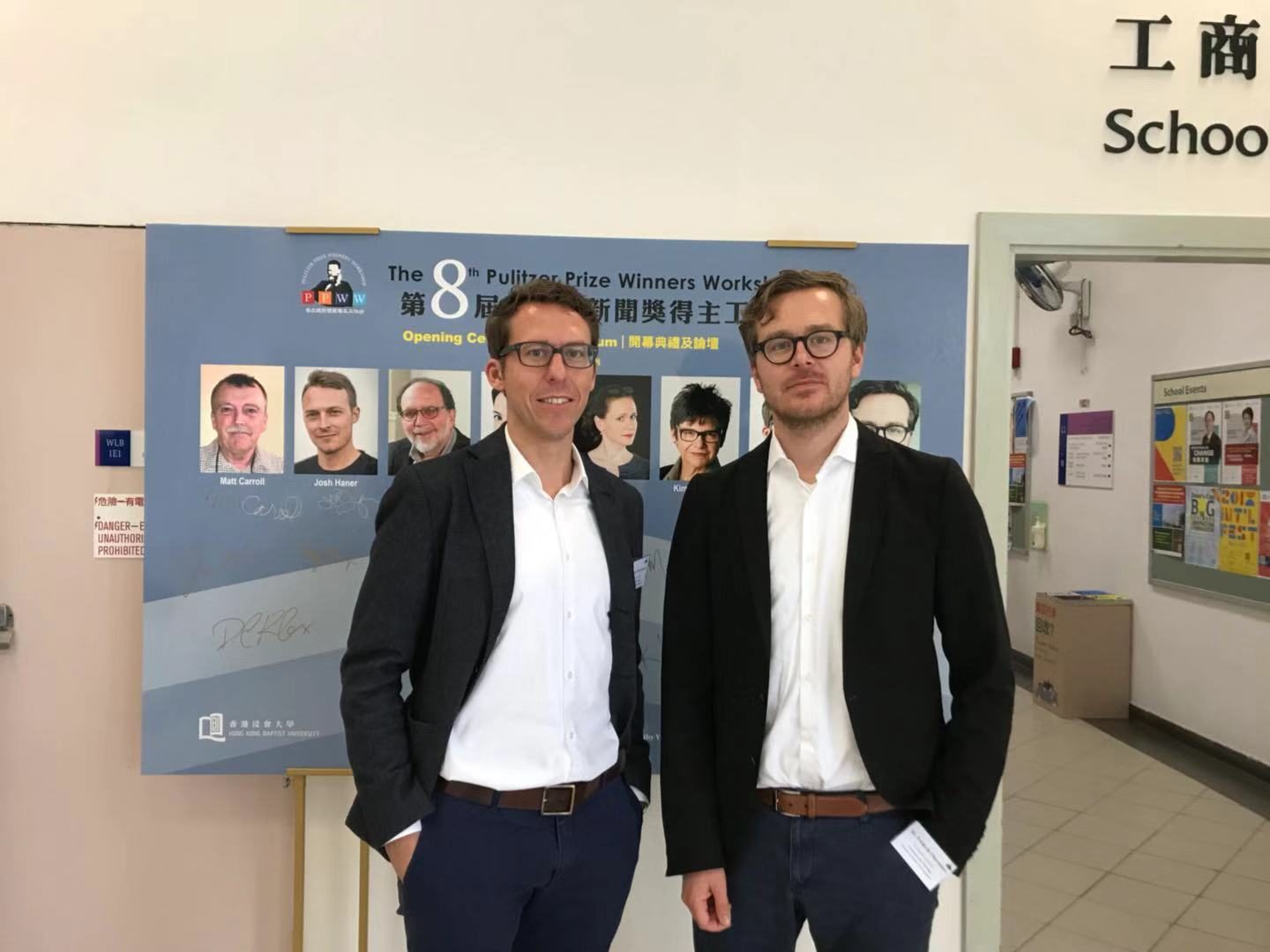
Several world leaders and celebrities were implicated in the scandal, among them Iceland’s prime minister Sigmundur David Gunnlaugsson, who resigned, and former Pakistan’s prime minister Nawaz Sharif who was disqualified from office.
Following the Panama Papers, another investigation, the Paradise Papers came out in 2017, which Obermaier and Obermayer were also part of. Both the Panama and Paradise Papers were published with the help of the ICIJ.
Prior to the two investigative reports, Obermaier never thought he would become a journalist. Rappler sat down with one of the 2017 Pulitzer Prize winners for Explanatory Reporting and 2018 Nieman fellow at Harvard on life after the Panama Papers, his investigation on the Ku Klux Klan, meeting Edward Snowden, and why press freedom in countries like the Philippines should be of concern for everyone.
Q: Growing up, did you ever want to be a journalist?
Frederik Obermaier: I admired certain journalists. I admired Bob Woodward when I was young. But I would never have dared to dream about becoming a journalist because I was not a good student…. I still remembered that one exam wherein we had to write an article and I had the worst grade.
I think, it was still kind of destiny. I didn’t start by studying journalism. I started studying political science and by sheer coincidence, a lot of my friends studied journalism. They told me what they’ve learned to write articles, that they are shooting films. This sounded amazing to me and I was super jealous. Then a professor told me about the possibility to do a two-career track. So studying political science and the diploma and then add journalism. So in parallel, that’s what I did then.
Q: What kind of stories fascinated you?
Obermaier: At the beginning, I was interested in foreign countries, in politics, especially the Middle East. So I traveled a lot to that region. I even studied for some months in Yemen…. I traveled to Iran, Lebanon, Morocco, Iraq, the Kurdish [area] in Iraq, and I started in the foreign desk in the newspaper. My dream was always to be a foreign correspondent.
Q: Tell me something about Germany beyond these – football, sausage, beer, and World War II.
Obermaier: What makes [it special] for me personally, that’s not important for some when they go there often, is the mountains. Munich is a city where you drive one hour by car and you’re in the middle of the mountains. From our office building, you can see the mountains. And when it’s a nice day, you can see how they’re really big and amazing.
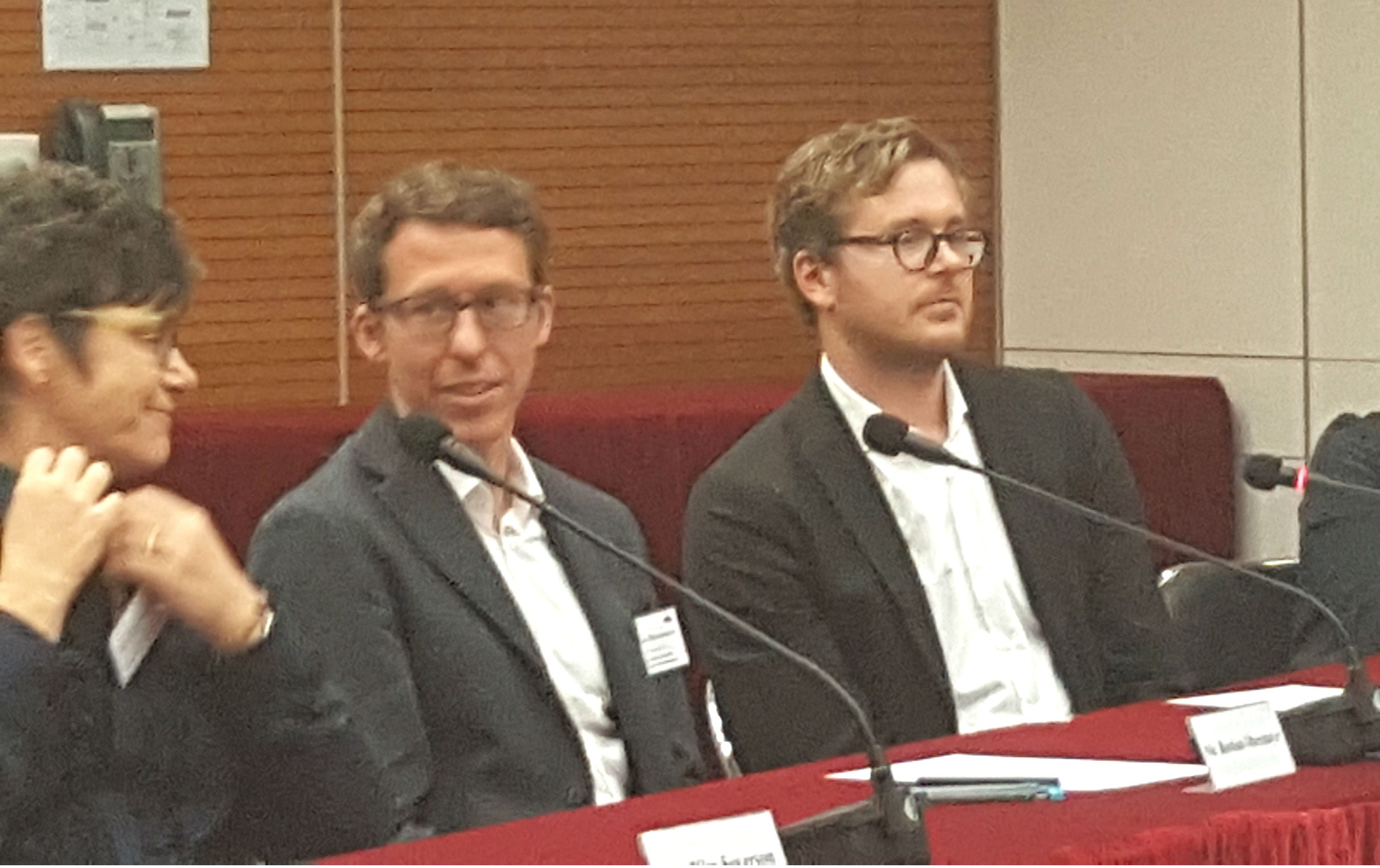
Q: I came across one of the interviews you and Bastian did and that was with Edward Snowden. What was he like?
Obermaier: He was very charismatic. That’s what surprised me most. When we sat down, it was quite obvious that he’s very bright and also a brave individual. And what surprised me the most was that…I mean there have been so many interviews with Edward Snowden in the past years, because he’s been doing so many interviews by meeting people and doing conference calls. Still in that interview was the first time – at least I’ve read – that he openly criticized the Russian government, that he called the Russian government “corrupt.” I think that was something that needed a certain of bravery because he’s depending on the Russian government. If the Russian government kicks him out, he’ll end up in prison in the US.
So that in my opinion was a brave step that he did so. Because there was no need to do it. He didn’t do it in dozens of interviews but he did it and that’s what has shown me that I think he doesn’t fear the powerful. He doesn’t fear the long arm of the US intelligence community, and I think he doesn’t fear the government and intelligence offices of Vladimir Putin.
Q: You wrote about one of the most controversial groups in the US – the Ku Klux Klan. What did you discover about them?
Obermaier: For me, it was not necessarily the US part that caught my interest. Because I think everyone knows that the Ku Klux Klan was active and is active in the US. But what got me interested in this topic was that I heard that the Ku Klux Klan was active in Germany as well. It came up after there was a series of murders of right-wing terrorist group conducted in Germany. They killed several migrants – actually we call them guest workers, people who moved from like example Turkey, Greece to Germany – and they killed one policewoman.
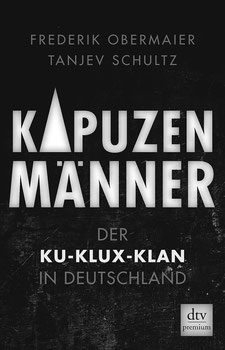
When authorities investigated those series of murders, they came across connections to the Ku Klux Klan. And when I read that, Ku Klux Klan what? In Germany? It can’t be true. And then I started digging. I’ve met a lot of people who were part of those German groups. I’ve obtained several documents on the Ku Klux Klan and I realized that since the end of World War II, there’s a constant history of the Ku Klux Klan in Germany. At every point in history after World War II at least there was one group of the Ku Klux Klan that was being active in Germany, sometimes half a dozens of groups being active.
Q: When did the investigation start?
Obermaier: That investigation started, I think, 3 or 4 years ago. Actually, together with my colleague Tanjev Schultz, we planned to write about it. We already signed the contracts, started to write, and then John Doe, the source of the Panama Papers approached Bastian and me. And basically, I had to lay the Ku Klux Klan stuff aside for the Panama Papers. And soon as the Panama Papers were published, I started working again, pick up the work on the Ku Klux Klan.
Q: How did the Panama Papers story change you and Bastian on the professional and personal level?
Obermaier: In professional terms, it changed everything. Although we have done some investigations before that caught some audience in Germany, we were two relatively unknown reporters from a newspaper, whose names people outside Germany were not capable of saying.
And then all of a sudden, coming into focus like being interviewed for example is super strange. I mean I’m a journalist. Now you’re interviewing me. Normally, I’m sitting in your place. That’s my job. My job is normally not to be interviewed and that still feels strange. And I also needed or I had to force myself to immediately open the Panama Papers and tell myself the fact that this was a once in a lifetime story.
This is not something you can expect to happen again. Because a lot of journalists and interviewers ask Bastian and me, what now? What is next? And always in the subtext of the question is when is the next big international thing? This is something like the Paradise Papers happened after the Panama Papers was already a miracle. But I think we cannot expect it to happen again. For us, like being back at work, normal work, there’s no difference. I think there’s one little difference – that our bosses allow us a little bit more of time for thorough investigations. Because sometimes, it takes more than a year for an international story to unfold and working for one year before the Panama Papers story was not normal.
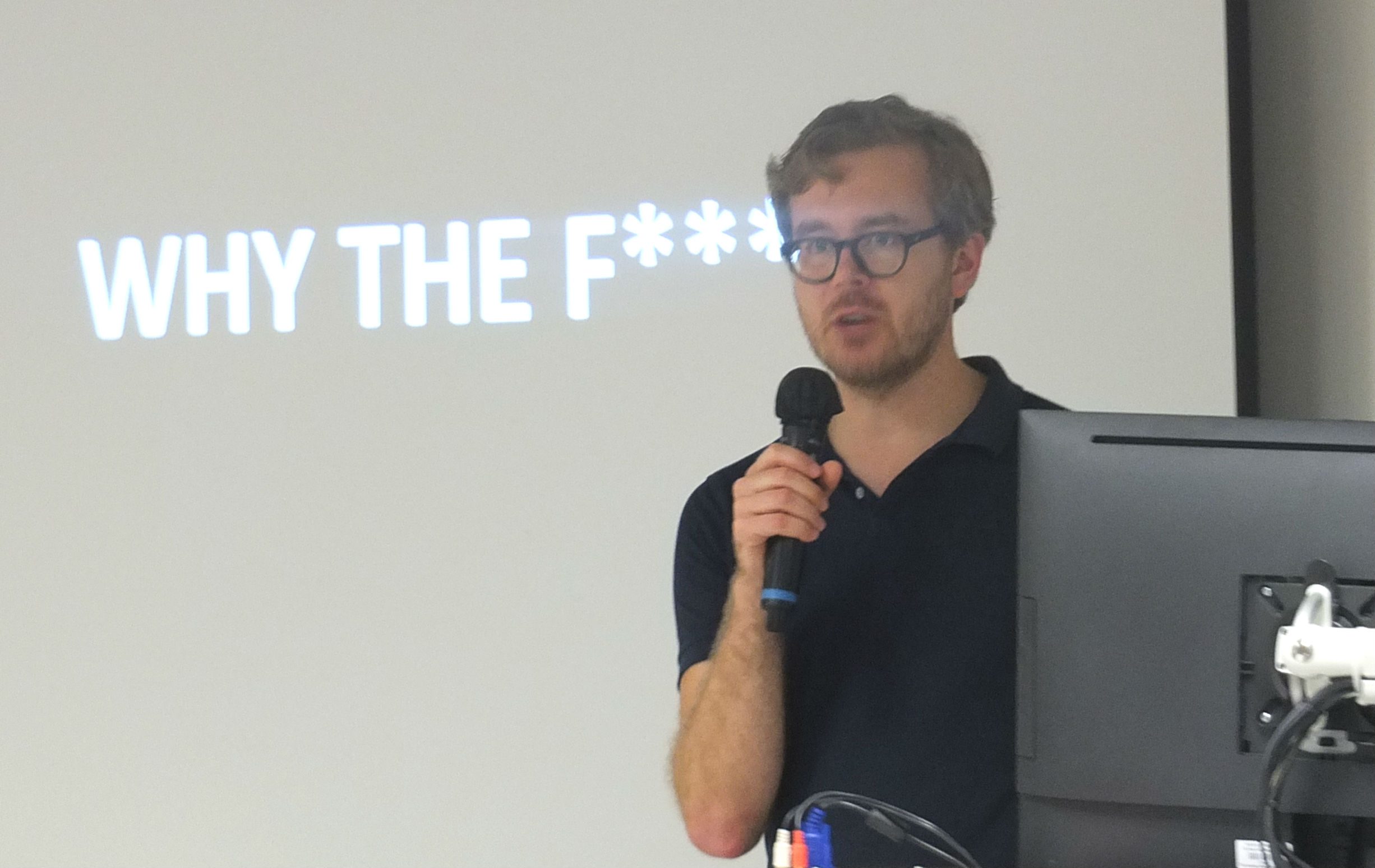
Q: Press freedom is going through many issues not only here in Asia but all over the world. What are your thoughts about it and why is it more important now to defend it?
Obermaier: I think we’re currently living in a world where freedom of the press is threatened not only in an autocratic regime, but also democratic states like for example the US. And that’s very worrisome. We do see, in my opinion, that if a duly elected president of a democratic state calls journalists fake news, that he claims that they are lying or the press is proving him to lie on a daily basis, encourages crazy people to do harm to journalists. So I think every personal harm to a journalist is something that President [Donald] Trump contributed to. And you know it because in the Philippines, we’re seeing a similar atmosphere wherein parts of the political elite tries to discredit journalists especially critical investigative journalism on a daily basis. And that is dangerous.
And I think it’s a time where we need international solidarity among societies and among journalists. If media outlets like Rappler is under threat, this is not a Philippine issue, this is a worldwide and global issue because it means another critical and important media is under threat. And that why we raised our voices. I was at that time a Nieman fellow at Harvard University when we heard the news about Rappler and SEC (Securities and Exchange Commission). And our class wrote an open letter because [while] we thought it (the letter) was something small, it will not convince the authorities in the Philippines of anything…but I think it was important to show that the world is watching.
[It] was the same thing for example with the two Reuters journalists who were jailed from Myanmar. Reuters did raise its voice and journalists all around the world raised their voice. When two journalists colleagues of ours were killed in Malta and Slovakia, it was in the case of the international team in Malta teaming up and showing that we will go on with the investigations of our colleague Daphne Caruana Galicia that was killed. Those investigations for a German audience might not have been important as those for Malta, but I think it was important to send a global message, a signal. If you kill a reporter, it will just shed more light on this issue. There will be more reporters coming from other countries investigating.
Q: Why is it important to be a journalist now considering freedom of the press is under threat and the dangers that come with the job?
Obermaier: I hope this doesn’t sound too pathetic but it’s easy to speak out in times when it’s safe. But it’s even more important to speak out when it’s dangerous, when freedom of the press, freedom of expression is in danger, when powerful elites, crooks, and criminals try to hide wrongdoings from society…. It is important that there is a group that tries to hold them accountable. I think transparency is something that’s very powerful. What journalists basically do is nothing else than laying the ground for societies and people, citizens to make a political decision based on the facts we present. And this political decision is done that’s something individual. It doesn’t mean that you have to go one way.
Complete different political conclusions are okay, there’s no problem with that. That’s fine. But I think it is important to have the facts laid out there and explain.
Q: Is there anything that fascinates you about the Philippines from the stories that you’ve heard?
Obermaier: I must admit that I didn’t know that much to nothing about the Philippines before meeting Glenda and her family. (Editor’s Note: Obermaier and Rappler Managing Editor Glenda Gloria were 2017-2018 Nieman Fellows).
Listening to them has shown me a picture of a country that seems to be a very exciting with very warm, friendly, and open people. But at the same time, it’s a country that has suffered in the past and is still suffering under the current government. And I’ve learned how difficult it is to be a journalist in the Philippines. And it showed me again what a luxury and comfort zone that I’m in, actually working in Germany.
It made me admire even more the work of outlets like Rappler do because it’s not that easy, unlike in Germany. We’re not under constant threat to be closed, where our reporters are threatened on a daily basis.
Q: What message do you have for those who want to be in the field of journalism?
Obermaier: I think we’ve spoken a lot about the challenges in journalism now, but at the same time, we’re living in a world where journalists are needed the most. And there’s so much needed for journalists and I do see more than the time when I started in journalism, we live in times wherein young reporters can change a lot and they can make a difference. Be it due to the knowledge in data journalism, be it to the access to a certain part of the community, or simply through new ideas.
Because not all senior reporters and editors do is good only because they did in the past 20, 30 years. Sometimes, it needs fresh air. I think that’s important and what I found very interesting and made me optimistic here in Hong Kong is in the classes, I think they’re about 90% women. And by the way, that’s something I’ve learned about the Philippines. When I listened to Glenda, hearing that a big part of Rappler were female reporters and editors, that’s amazing.
Seeing what’s happening here in Hong Kong and the reality in the Philippines, that makes me look forward with a smile to the future. Because I’m sure and hope that when we speak, for example, in 5 years, 10 years in Germany, we have like 50% male, 50% female staff in our newspaper.
Q: Complete this sentence. I am Frederik Obermaier, I am a journalist and…
Obermaier: I am Frederik Obermaier. I am a journalist and I want to thank John Doe, the source of the Panama Papers, because he or she not only changed my professional life. I think this whistleblower changed a lot worldwide. I also want to thank other whistleblowers. If they are publicly known or not known, I think it’s important they know that society owes them a lot. – Rappler.com
Add a comment
How does this make you feel?
There are no comments yet. Add your comment to start the conversation.